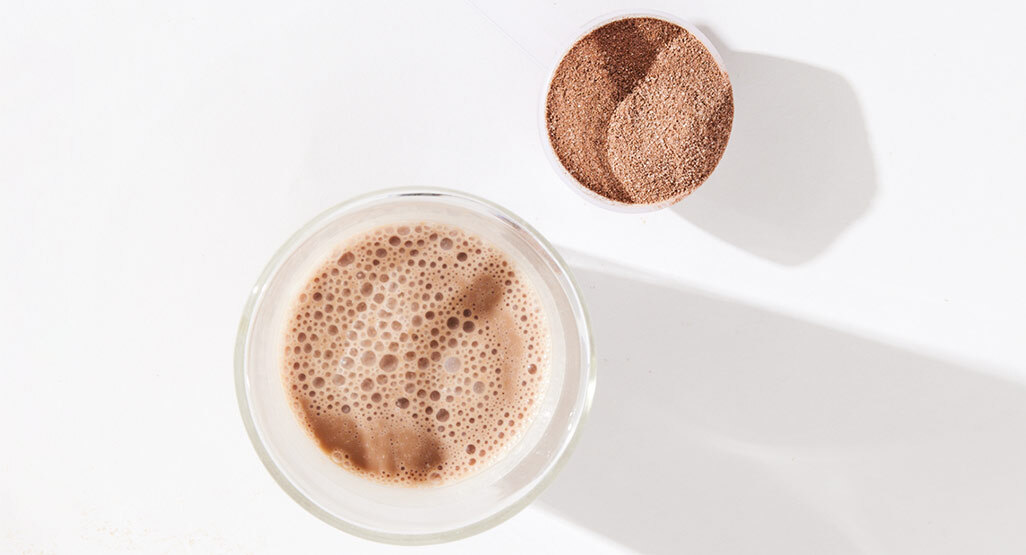
Protein shakes and smoothies are all the rage—and while you can definitely drink them while you’re pregnant, you’ll want to do so sparingly. They’re not the healthiest way to get all the nutrition you need during pregnancy, and they can have some significant drawbacks, depending on what you put in them.
That is the truth is, you need to increase your protein intake when you’re expecting—you need anywhere from 60 to 100 grams a day, depending on your weight, level of physical activity, and stage of pregnancy (three ounces of oily fish is about 20 grams, a cup of milk is eight, and an egg is six) , but there are many ways to do it.
Advertisement | page continues below
“Protein shakes aren’t necessarily bad for you,” says Layan Alrahmani, MD, an ob/gyn, maternal-fetal medicine specialist and member of BabyCenter’s medical advisory board. “Just look for one that’s primarily protein, not a meal replacement — and watch out for added sugar.” Here’s more on how to enjoy protein shakes during pregnancy.
Key Takeaways
- If you eat a standard American diet that includes meat, you’re probably getting enough protein in your diet without needing to supplement.
- When shopping for protein powders and shakes, look for hidden ingredients like sugar before you buy.
- Your doctor can always answer any questions you may have about weight gain or nutrition during pregnancy.
Are protein shakes safe during pregnancy?
Protein shakes can be an easy way to make sure you’re meeting your protein needs, especially if you’re having a hard time eating because of morning sickness. But most American women get enough protein in their diet and don’t need a shake to reach their goal. The best and safest way to meet your protein needs is to eat a variety of protein-rich foods. “If you eat a standard American diet as an omnivore, you’ll probably get plenty of protein and not need to eat,” says Dr. Alrahmans. “However, if your diet is predominantly plant-based, it may take a little more thought and effort to get an adequate amount of protein.
Protein powders are powdered forms of protein that can come from plants, eggs or milk. You mix them with water or milk or throw them into a smoothie. But they’re lightly regulated by the FDA because they’re considered supplements, so there’s no way to know for sure what other ingredients are in them. In fact, a report by the nonprofit Clean Label Project reviewed more than 130 protein powders and found that many contained heavy metals (lead, arsenic, cadmium, and mercury), bisphenol-A (BPA, which is used to make plastics), pesticides, or other pollutant.
Protein shakes can also contain large amounts of added sugars and caffeine, which can be harmful to you and your baby (remember, you should limit caffeine to 200 milligrams per day or less when you’re expecting). And some are packed with extra vitamins and minerals that may already be in your prenatal vitamins, meaning you’ll be getting more than you need.
Just look for protein shakes that are primarily protein, not meal replacement—and watch out for added sugar.
– Layan Alrahmani, MD, OB/GYN, Maternal-Fetal Medicine Specialist and BabyCenter Medical Advisory Board Member
It is important not to use protein shakes for weight loss during pregnancy
When you’re pregnant, your focus should be on nutrition, not weight loss, says Alrahmani. Therefore, it is important not to use protein shakes (which are a common meal replacement supplement) to help you lose weight, as dieting during pregnancy is not a good idea. If you need help managing pregnancy weight gain, your healthcare provider can help you understand how to eat healthily and set up a safe and effective exercise program.
Bottom line: It’s okay to have the occasional protein shake as an on-the-go snack, but just make sure the ingredients are safe. To get the best nutrition for you and your baby, it’s better to eat a variety of foods from all food groups. Greek yogurt, cheese sticks, beef, edamame and baked chickpeas are some of Dr.’s favorite snacks. Protein-rich Alrahmania.
Advertisement | page continues below
